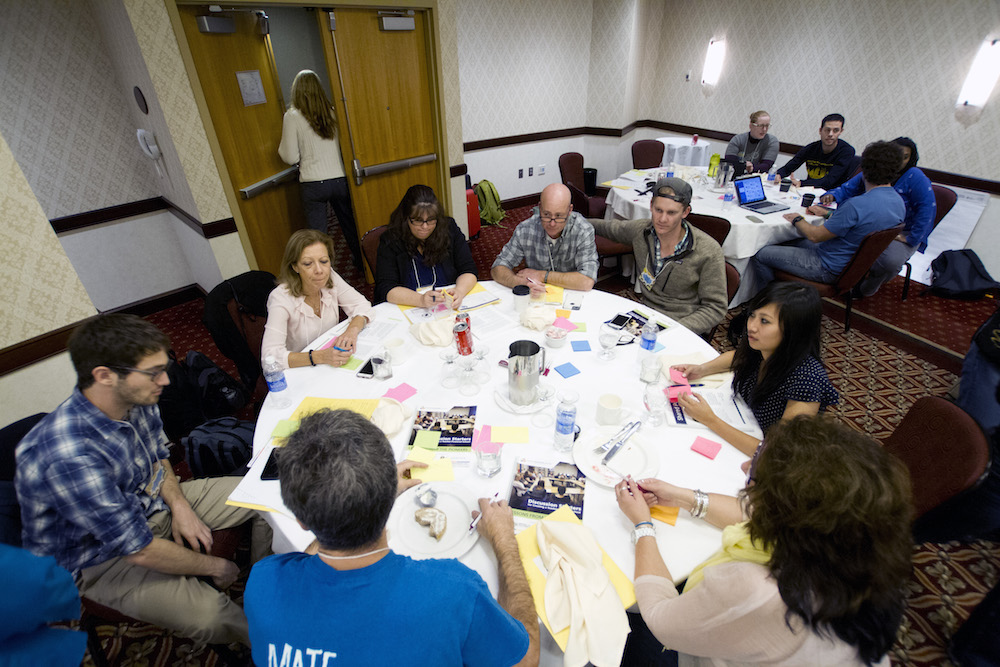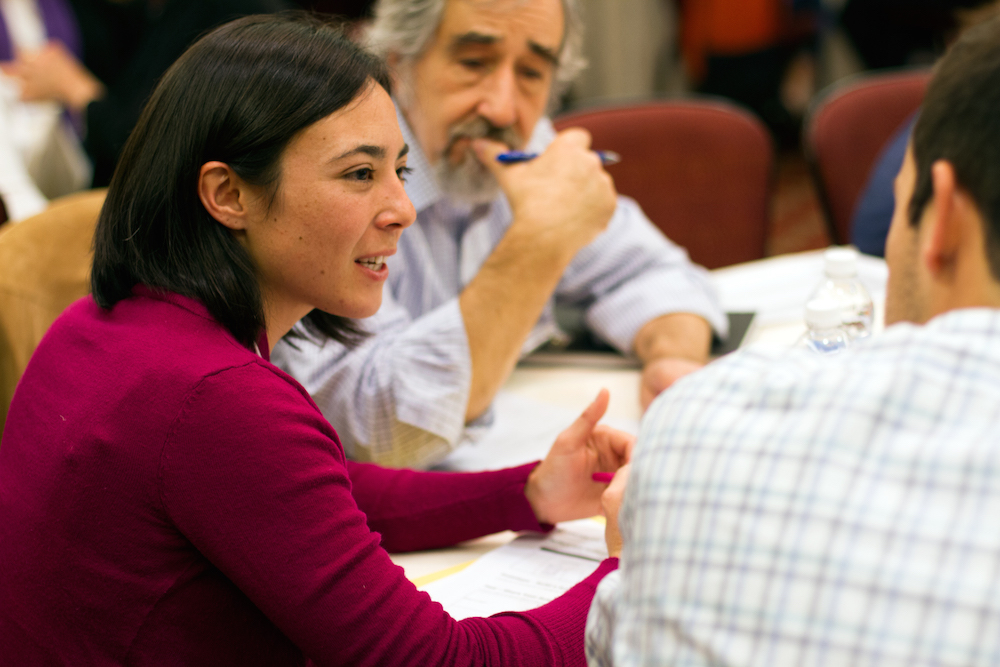
Proposals due by July 31st
We are seeking applications for interactive and engaging breakout sessions for the 2017 National Teacher-Powered Schools Conference, designed and run by current teacher-powered practitioners and those who support them.
In teacher-powered schools, teacher teams secure collective autonomy to design, implement, and make the decisions influencing school success. This innovative school governance model opens the opportunity for teachers and students to shift the ways they work and learn. They are taking advantage of (and sometimes catalyzing) state and school district policies to transform American public education from the ground up. Some of these changes include:
- Addressing teacher quality by seeking professional roles, including the opportunity to collectively select colleagues and team leaders, evaluate peers, and determine the school budget.
- Teachers accepting ownership, including accountability for school success, in the areas they have the authority to make decisions
- Personalizing student and teacher learning
- Bringing teachers and administrators together on behalf of students
- Collaborating to boost student achievement and advance authentic assessment
- Setting and measuring progress toward goals and acting upon results to improve performance

Share how your teacher-powered school team, union leadership, or leadership organization uses innovative practices in these areas. Sessions should be designed from a “how to” perspective, and be interactive. We encourage collaboration so participants can be exposed to strategies from more than one school! Potential topics might include:
- Cultivating shared purpose
- Advancing new and different approaches to teaching and learning
- Effective and efficient decision making in a distributed leadership setting
- Leadership structures: the roles of principals, lead teachers, and head committees
- Securing and sustaining autonomy
- Defining and measuring success, and then readjusting for greater success
- Authentic student assessment
- Pushing the limits of zero tolerance, and determining the best ways to address students’ needs using a social justice lens
- Hiring practices and cultural onboarding
- Innovative teacher evaluations (e.g., peer, 360 degree)
- Resisting the pressure to conform to traditional learning structures and conventional management practices
- Embracing and resolving conflict
- Strategies for parent and community involvement
- Building allies, including relationships with districts, administrators, and unions
- YOUR innovative practice!
- Advocating for teacher-powered schools
- For national, state, and local union leaders, as well as other supporters of teacher-powered schools, supporting teacher powered schools by: encouraging teachers to take the opportunity, helping negotiate the opportunity for autonomy (and then retaining and expanding that opportunity), providing specific training, advancing state legislation, and more
Some advice for potential session leaders:
- Partner with another school. Many breakout sessions are collaborative efforts involving multiple presenters from different schools. Think about who you can co-present with? Now’s the time to contact them to see if they’d like to offer a session with you! Need suggestions? Contact Amy Junge (amy@educationevolving.org) and we can brainstorm together.
- Be innovative with your session. Get the audience engaging with you and each other! Think about how you can get them out of their seats and moving around the room. Consider what you’d like to learn from them (not just what they can learn from you). The goal is to have people walking away with the tools, skills, and confidence to try it at their school.
- Share your stories. Attendees prefer hearing your stories about students, teachers, and support staff. They are interested in learning about what you did, what you learned, and how they may be able to learn from your experience.
Presenters whose proposals are accepted will be given complimentary registration and up to two nights of their hotel accommodation (if they do not live nearby the conference center). These presenter benefits will apply for up to two presenters per breakout session.
 NEWSLETTER SIGN-UP
NEWSLETTER SIGN-UP



